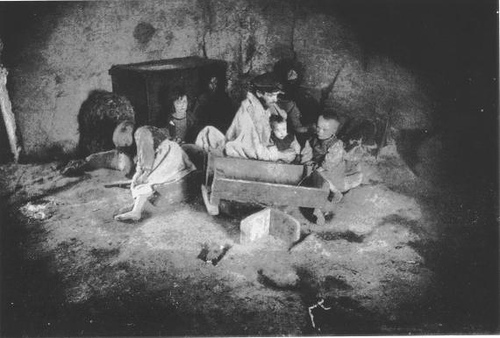There are two similar chapters in the King James Bible.
They are 2 Kings chapter 19 and Isaiah chapter 37.
The first 14 verses of each chapter are identical, word for word.
There are two similar chapters in the King James Bible.
They are 2 Kings chapter 19 and Isaiah chapter 37.
The first 14 verses of each chapter are identical, word for word.
The longest English word of one syllable is squirreled.
The longest English word with only one vowel is strengths.

“When the lusty and fyne man should holde a young damosel, or a woman by the hand, and keeping his measures he shal remoue himselfe, whirle about, & shake his legges alofte (which the daunsers call crosse capring) for pleasure, doth not she in the meane while make a good threede, playing at the Moris on her behalfe: but I pray you: what can ther by there of God, of his worde, or of honestye in such folishnes: I holde my tounge, that is, I speake nothing of their wordes, amorous deuises, or deuises of loue, wanton communications or speeches or markes only knowen to the Ladye, or Gentlewoman. It is true, that a man will say to me, that he must reioyce and be mery, which thing also I graunt, but yet not with a worldly, dissolute, and leuse ioy.”
— A Treatise of Daunses, Wherin It Is Shewed, That They Are As It Were Accessories and Dependants (or Thynges Annexed) to Whoredome, 1581
The only common English word that has five vowels in a row is queueing.
Samuel Taylor Coleridge and William Wordsworth used to roam the hills and coast of southwest England on long night walks; eventually the local villagers began to whisper that they were spies for the French.
The government sent an agent to investigate; he reported that they were “mere poets.”

“… six famished and ghastly skeletons, to all appearance dead, huddled in a corner, their sole covering what seemed to be a ragged horse cloth, and their wretched legs hanging about, naked above the knees. I approached in horror and found by a low moaning that they were alive, they were in fever — four children, a woman and what had once been a man. … In a few minutes I was surrounded by at least 200 of such phantoms, such frightful spectres as no words can describe. By far the greater number were delirious either from famine or fever. … Within 500 yards of the Cavalry Station at Skibbereen, the dispensary doctor found seven wretches lying, unable to move, under the same cloak — one had been dead many hours, but the others were unable to move, either themselves or the corpse.”
— From a letter by a Mr. O’Brien to the Duke of Wellington describing a visit to Skibbereen during the Irish potato famine, Dec. 17, 1846
In May 2005, someone delivered a box of ashes to the council chambers of Queanbeyan, a city in New South Wales, Australia. It was engraved with the words “Elizabeth Clarke Cunningham, Aged 59 years, Died 13 June 1997.”
The box was passed on to the New South Wales police, but no one has been able to discover who Cunningham was, whether she had any relatives, or who delivered her ashes.
There are only two books in the Bible that do not contain the word God.
They are Esther and Song of Solomon.
The word eternity occurs only once in the King James Bible (in Isaiah 57, verse 15).